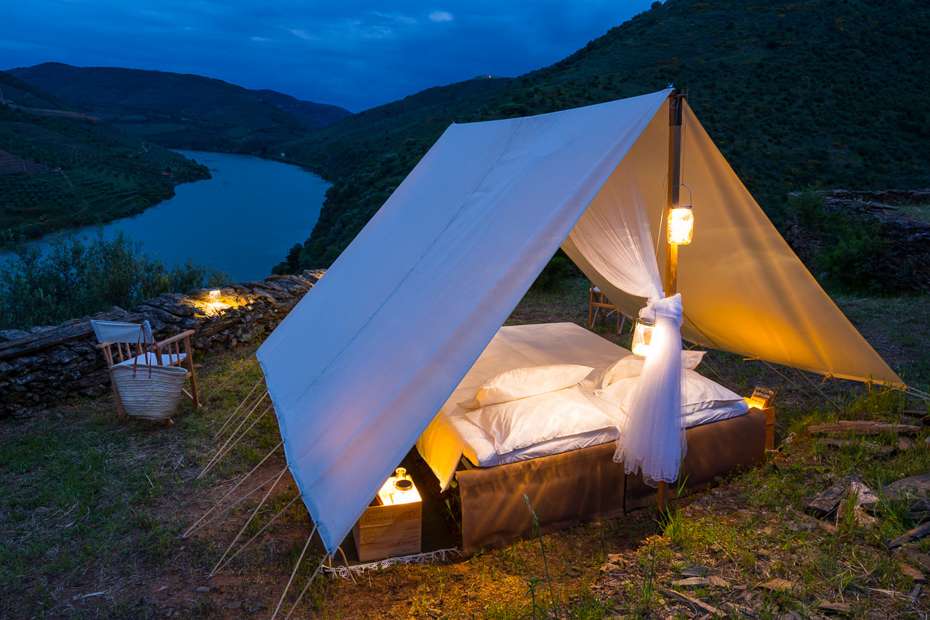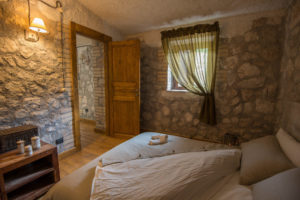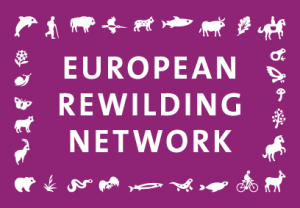This year’s second European Rewilding Network (ERN) webinar saw 13 participants from seven European countries come together online to discuss nature-based tourism.

The nineteenth ERN webinar focused on how long-term, sustainable models for nature-based tourism can benefit rewilding, and how, in turn, rewilding can help to increase the opportunities for building and expanding such models.
 Simon Collier is Rewilding Europe’s wildlife tourism manager and director of the European Safari Company (ESC). He talked about his role and the importance of the ESC as a sales and marketing business for nature-based travel experiences. By partnering with the ESC, which currently offers accommodation and experiences in seven countries across Europe, businesses can focus more of their time on giving guests a fully rewarding experience.
Simon Collier is Rewilding Europe’s wildlife tourism manager and director of the European Safari Company (ESC). He talked about his role and the importance of the ESC as a sales and marketing business for nature-based travel experiences. By partnering with the ESC, which currently offers accommodation and experiences in seven countries across Europe, businesses can focus more of their time on giving guests a fully rewarding experience.
“Nature-based travel is the fastest growing segment of the tourism industry,” says Collier. “European landscapes and wildlife have enormous potential for generating viable incomes. The benefits to local economies can be significant and diverse.”

Various examples of successful nature-based businesses were discussed during the webinar. One of these is the Star Camp in Portugal, which directly contributes to local conservation and the upkeep of the Faia Brava Nature Reserve (part of the Western Iberia rewilding area) through a “per guest fee”. This is paid annually to Portuguese NGO Associação Transumância e Natureza (ATN) and is used to improve and expand the reserve. The ESC also contributes 2% of its commission to rewilding activities in the area.
Italian Umberto Esposito, the second webinar speaker, shared a personal story about starting his inspirational business. Following mountain guide training Umberto worked as a nature guide for several years, before establishing the Pescasseroli-based nature tour, hiking and accommodation service company Wildlife Adventures.

Wildlife Adventures was the first business in the Central Apennines to receive a loan from Rewilding Europe Capital (REC), with the money used to develop the company’s website and marketing activities. Following an increase in sales Umberto received a second loan, allowing him to transform an old shepherd’s hut into the Bisegna Mountain Refuge.
A partnership with the ESC, together with other tourism companies, has already increased Bisegna Mountain Refuge sales by 200%. Another example of nature-based businesses giving back to nature and rewilding, Wildlife Adventures contributes 10% of its profits to Salviamo l’Orso, an NGO and a local partner of Rewilding Europe working on the conservation of local Marsican brown bears.
On all of their excursions Umberto and his team consult local stakeholders, because in the Italian’s words “we are strongly convinced that local involvement represents one of the best ways to promote and conserve local wildlife and wild nature”.
Following these two presentations members touched upon various practicalities, discussing the difficulty of finding local partners, different types of accommodation, and the relative ratios of international and domestic guests. They also talked about the different ways in which financial profits can flow back to nature.
Today there are numerous opportunities for nature-based business development in both remote and not-so-remote areas of Europe. As this latest webinar demonstrated, the successful involvement of local stakeholders can lead to profitable and sustainable tourism operations that significantly benefit communities, wild nature and rewilding activities.
A burgeoning network
Rewilding Europe regularly organises webinars for ERN members to discuss rewilding related topics and share insight and experience. Since it was launched in 2013 the network has shown impressive growth and now contains 61 members from 26 European countries (including Rewilding Europe’s eight operational areas).
 The ERN operates on a stronger together philosophy, promoting rewilding as a conservation approach. Through the year, members meet regularly via webinars to share knowledge, insight and examples of best practice. The presentations from webinars are stored on the ERN Forum, a real-time platform for discussions and exchange between members.
The ERN operates on a stronger together philosophy, promoting rewilding as a conservation approach. Through the year, members meet regularly via webinars to share knowledge, insight and examples of best practice. The presentations from webinars are stored on the ERN Forum, a real-time platform for discussions and exchange between members.
Rewilding Europe extends a warm welcome to rewilding initiatives that are interested in joining the ERN. Information on applying for membership can be found here.
